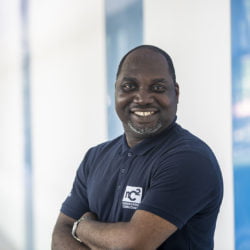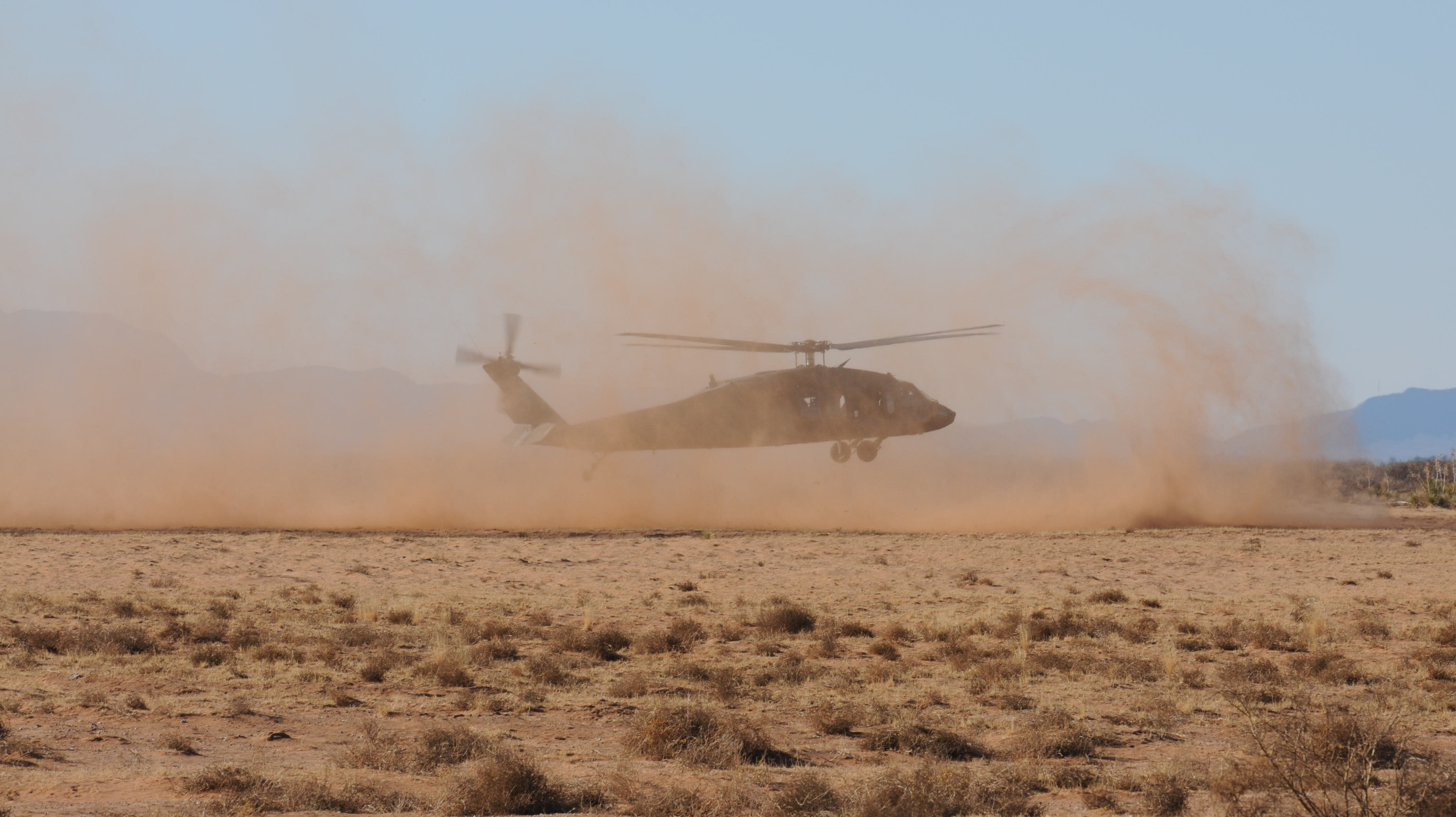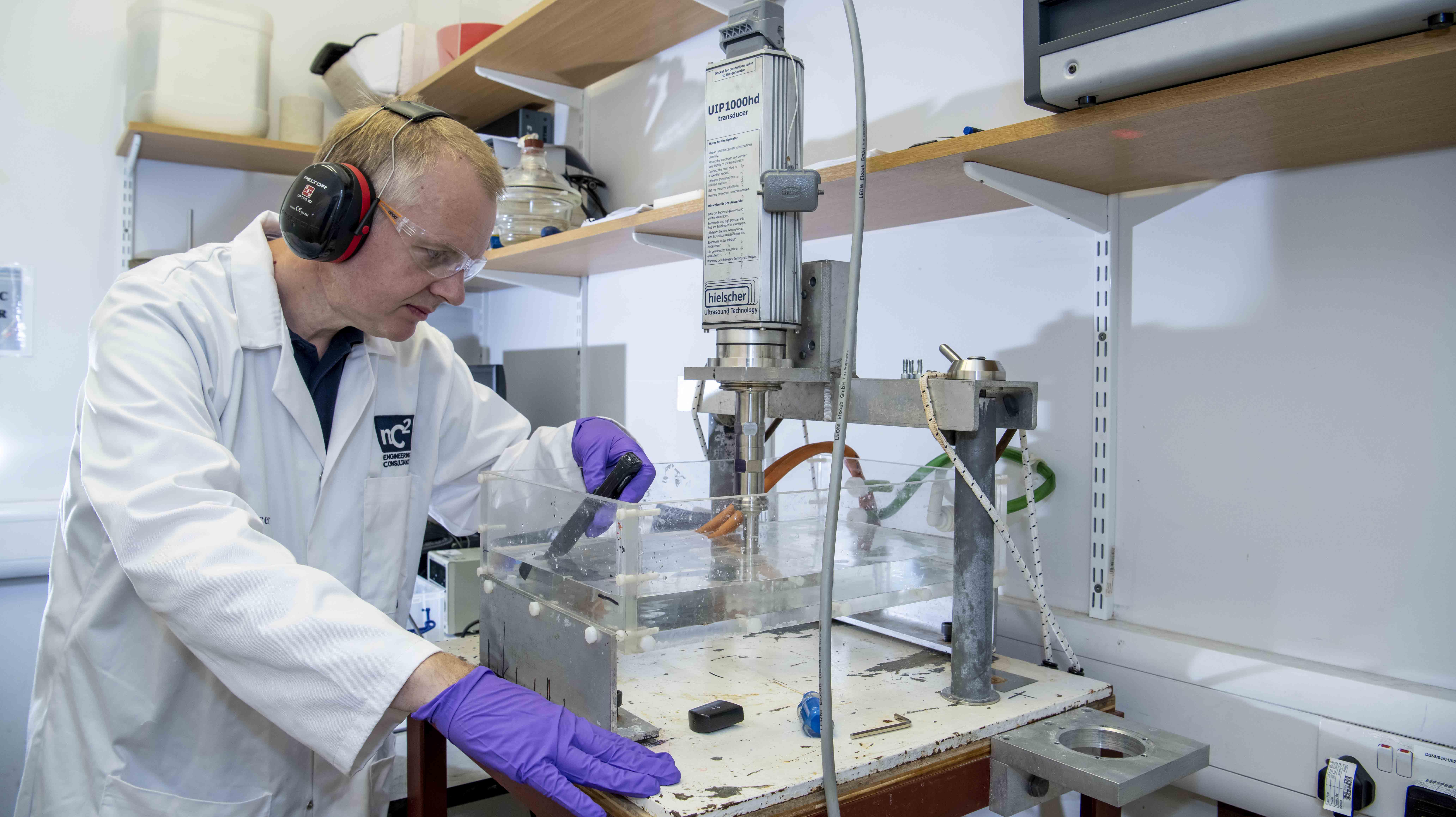Dr Jelili Bello (JB), Senior Consulting Engineer, is our abrasion and erosion specialist and has more than 16 years’ experience of working with clients in industry, particularly in the energy, oil and gas sectors. He has been with nC2 since its formation in 2015.
After gaining a mechanical engineering degree in Nigeria, JB did a PhD in tribology at the University of Southampton. He is a member of the Institute of Mechanical Engineers (IMechE).
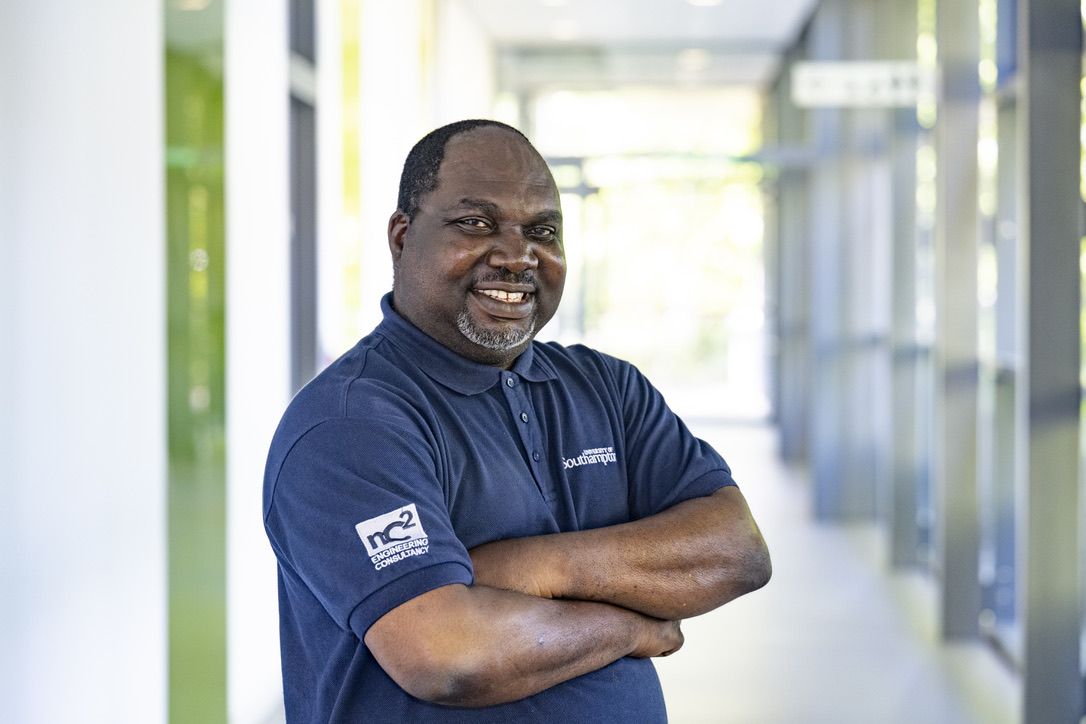
Dr Jelili Bello
What made you want to go into engineering?
In secondary school I really enjoyed maths and physics; doing mathematical calculations, designing things and solving problems all resonated with me. I also liked the idea of being able to apply my knowledge to real-life situations and having the opportunity to solve engineering problems.
What roles did you have before joining the nC2 team?
I was working for a University of Southampton consultancy unit called the Research Institute for Industry (Rifi), managing their tribology-related projects. Tribology is a vast field and relates to many different aspects of mechanical engineering, and the idea of expanding this area of work eventually led to the establishment of nC2.
I brought a range of transferable skills to my work at nC2, including project management, customer service, communication skills, teamwork, working without (or with less) supervision, working under pressure and multitasking.
What is your specialist field?
I manage all projects that relate to abrasive and erosive wear. This includes doing slurry (water-sand) and air-sand erosion testing, and Taber Abraser and micro abrasion wear testing.
I apply my expertise in these areas to help industry clients solve engineering problems or provide evidence and advice to support their R&D programmes. Usually the projects are materials related; they are often about how components or parts made of certain materials interact with each other and what makes them malfunction. I investigate what’s going on and where possible suggest solutions, such as changing the materials or modifying them to perform better.
Wherever there is movement, tribology is always involved. So I work in many industry sectors, for example, manufacturing, oil and gas, automotive and pharmaceuticals.
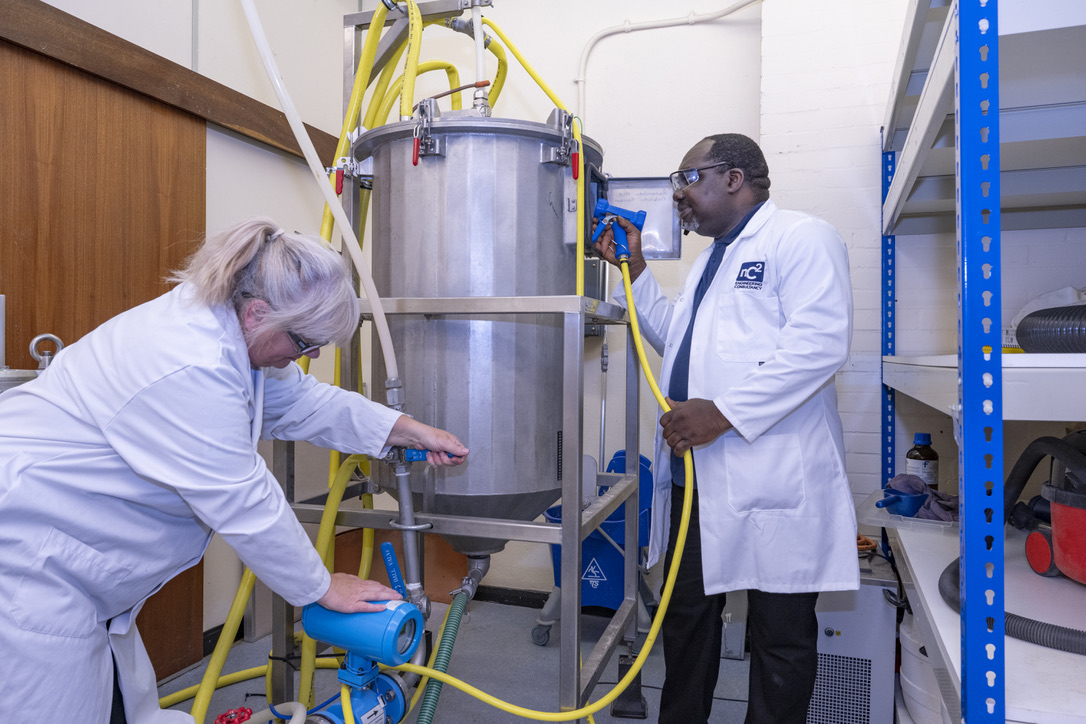
Setting up the slurry erosion test rig
What do you enjoy most about your role?
Whatever the type of project, for me the joy comes from being able to help clients find a good solution. Whether it relates to a problem with equipment breaking down, or they are looking for something new for their R&D, I can help them get the answers they need so they can take their next steps.
Tell us about a project you’re particularly proud of
The first large slurry erosion project we secured was a challenging one, because the client needed things that were outside our normal way of working. For example, rather than using our standard sand particles to make the slurry for testing, they asked us to use three different types of sand imported from Australia (where the company was based). Also the size of the project meant all of us had to get involved to get it completed on time, with a rota whereby we were testing around the clock to meet the deadline. I trained my colleagues to do the tests – that’s the nature of how we work, and it helps us all to develop our knowledge.
The complexity and the size of the project meant it was complicated but interesting, and it helped us to learn things about how we work and make improvements in our own operations. The fact that we were able to complete the project to the client’s satisfaction and on time was a big achievement.
What do you see as nC2’s strengths?
We provide excellent customer service and the highest possible quality of technical work. We also include the client throughout the life cycle of a project – that’s the added value nC2 brings. With most test houses you specify the tests you want and they do the tests and give you the results – they don’t get involved in any other part of the project. We go way beyond that, getting involved from the conception of the project to delivery, with regular communication with the client along the way.
Being members of the University, we have an entire academic environment to call upon if part of a project falls outside the scope of our expertise. We can tap into chemistry, physics or other relevant University departments, and bring in highly qualified experts. The same goes for facilities – we can access state-of-the-art facilities from across the University to complete a project.
What’s your approach to working with clients?
Customer service is of the highest priority in the type of work that we do and I’ve always placed a high value on that. It’s important to sit down with clients, listen to their problems, and help them to understand the nature of what they’re looking for so we can help them achieve their goal.
We take the time to explain to them what we believe is happening in terms of their problem or issue, and the direction they can take to find a solution – for example suggesting the most appropriate tests to examine why a machine is failing or to discover the most suitable material for a particular component.
After the results are obtained we write a report explaining what the data means and how it can help them make decisions for their product development going forward. We also offer to have a meeting with them at the end of the project to discuss the results.
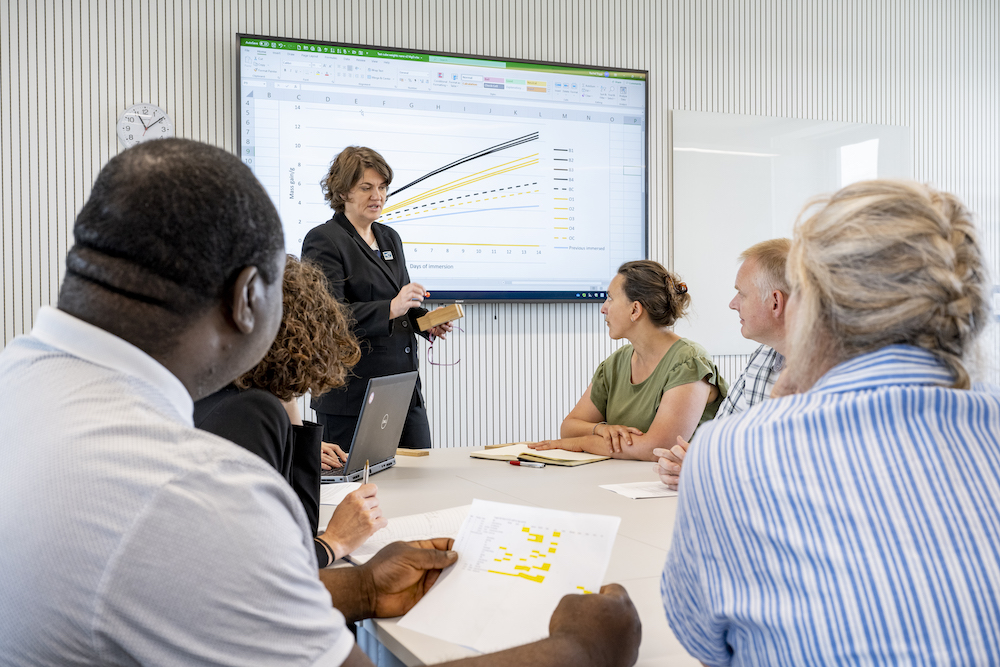
How does your extensive experience benefit your clients?
I can help clients to understand what they really need. They may come to us and say, “I want to test using this method”, but when I look carefully at their process and how their machinery is operating, I can see that they have picked the wrong method, for example. Then it’s my job to explain this to them and advise them of a more appropriate method to use for testing their material in order to get more useful answers.
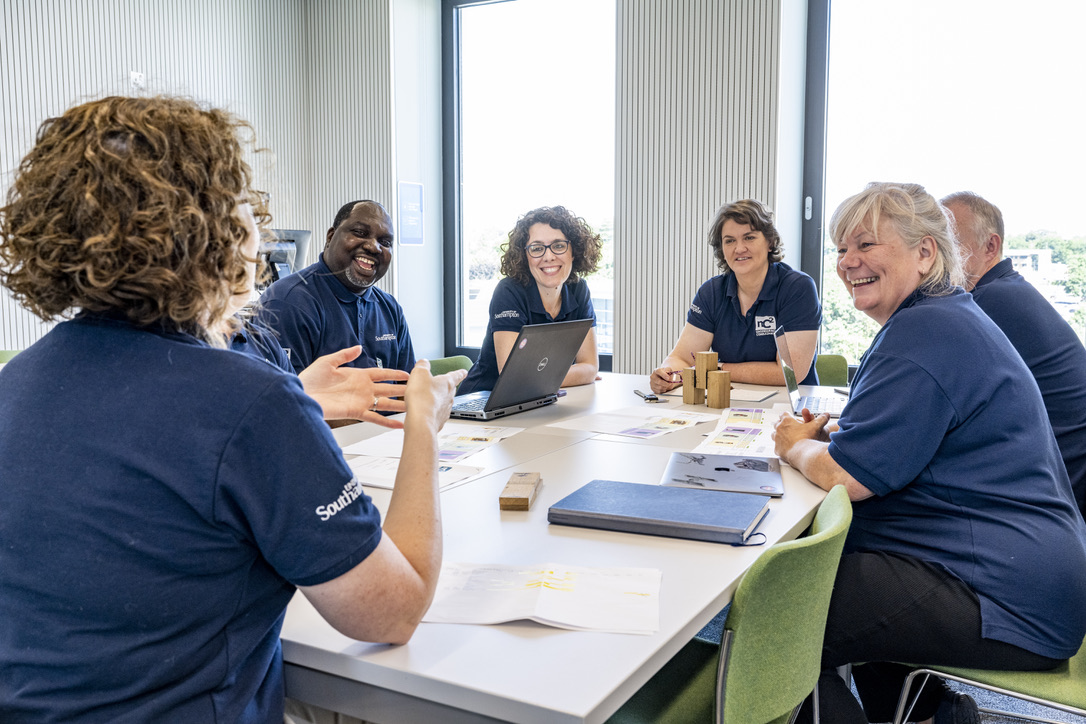
Team meeting
What do you enjoy about being part of the nC2 team?
The culture in the team is relaxed and flexible while working hard to achieve our goals. We all happen to be within a similar age bracket, with young families. This has really brought us closer together because we all have similar responsibilities at home, especially in terms of childcare.
Although each of us are experts in our own regard, we still flow into each other’s areas of work to support each other. Sometimes it takes all of us getting involved to get a project completed on time. That’s another thing I enjoy – working as a team and learning from each other so we all develop new technical and non-technical skills.
